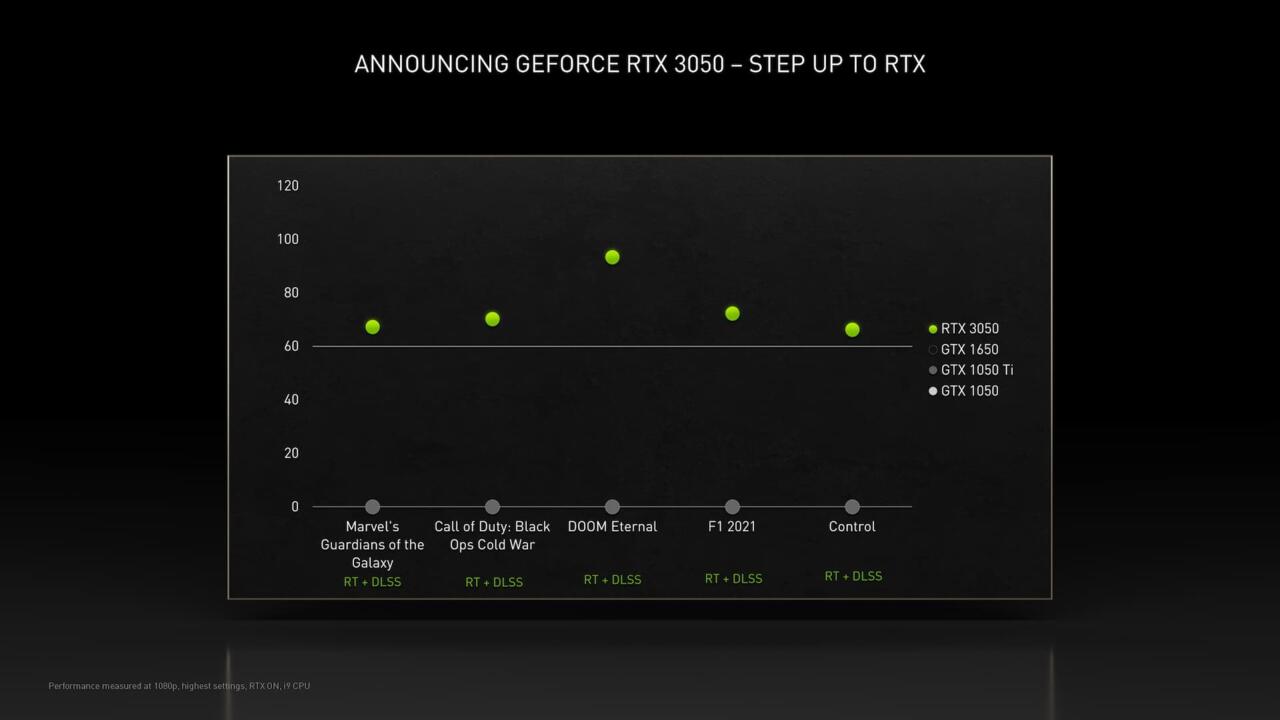Nvidia Announces New Low-End 30 Series Graphics Card, RTX 3050
The RTX 3050 will be capable of ray tracing and support DLSS, all for $250.
Nvidia is aiming to bring ray tracing and DLSS upscaling technology to the masses with its latest GPU, the RTX 3050. Announced during the company's CES 2022 showcase, The RTX 3050 launches later this month for just $250, cheaper than Nvidia's RTX 3060, although it's not likely that customers will find a card for that price.
Built using the same Ampere architecture as Nvidia's other 30 Series cards, the 3050 includes second-generation RT cores for ray tracing and third-generation tensor cores, which are used in the company's DLSS upscaling tech. According to Nvidia, users will be able to play modern titles with ray tracing on at over 60fps using the RTX 3050, although at 1080p and not 4K.

Nvidia's new RTX 3050 also boasts an impressive amount of memory, especially when compared to AMD's new low-end GPU that was also revealed today. The RTX 3050 will include 8GB of GDDR6 memory, a sizable amount considering its relatively low MSRP. Comparatively, AMD's new RX 6500, which costs just $200, will likely struggle with ray tracing any games at 1080p and only sports 4GB of GDDR6 memory.
For Nvidia, the RTX 3050 isn't just a cheap card for newcomers to PC gaming to get started on; it's a way for owners of old graphics cards to easily upgrade to something modern. According to Nvidia's VP of GeForce Marketing, Matt Wuebbling, 75% of PC gamers are still using Nvidia's dated GTX GPUs. The RTX 3050 presents itself as an easy opportunity for those graphics card owners to upgrade when it launches on January 27. However, it's unlikely that users will actually be able to pick up a card for that cheap due to both supply shortages and increased demand for PC parts.
Got a news tip or want to contact us directly? Email news@gamespot.com
Join the conversation